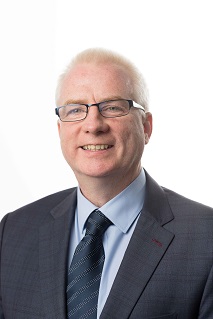There’s never been a better time to pursue a career in rail engineering, as major rail expansion and new projects such as “Luas Cross City” are opening up new opportunities locally.
Opportunities are out there, but the crucial question is how you can make yourself stand out from the crowd and secure the position you want within the exciting rail engineering industry. Specific experience and qualifications can give you a unique selling point when you’re looking for a role in a specialised area, so further training may be worth considering to enable you to get where you want to be.
1. Specialised knowledge. In the current rail-engineering climate, employers can afford to be picky about what they expect from applicants, and they’re seeking a detailed knowledge of design standards, including BS, HA and NR. This offers employers reassurance about cross-disciplinary standards and allows for co-ordinated work by different teams, and you may be able to bring your knowledge up to par by taking a short course in the specific standards you want to work with.
2. Project managing qualifications. The qualifications in demand at this time appear to be Prince2 and the Association for Project Management’s APMP. These courses are offered through many different institutions, including universities and training companies. This type of qualification can enhance your salary and give you a good chance to move up the ladder, and courses tend to be short and cost effective.
3. Computer skills. Experience with the programmes used within the rail projects you hope to work on will be an important asset to your application. AutoCad, Intergraph and MicroStation are all used on the frontline of rail engineering and it could be of great benefit to your career to explore opportunities to become competent in all three.
4. Big Data expertise. Knowledge and understanding of Big Data is becoming increasingly useful within the engineering industry, and rail engineering is no exception. The potential for Big Data to revolutionise this area is unpredictable at present, but experts believe it to be crucial to the future of all sectors of engineering. Familiarising yourself with this new concept can be done gently, using charting software, or intensively, via post-graduate programmes, so you can choose the level you wish to engage at.
5. Experience of Hazop analysis. Hazard and operability study skills are a vital asset if you’re seeking a project-engineering job. This level of specialism relates to risk and hazard perception, and you can access short courses via Chris Mee Group, which will increase your employability in certain sectors of rail engineering.
CareerWise is Ireland’s leading specialist Technical and Executive Recruitment firm, and our friendly team are on hand to help you to find great engineering jobs in Cork, Galway or Engineering jobs in limerick. Whatever your level of qualification or experience, if you’re looking for a new position, or a role within one of our specialist industries, contact us online now or call us on +353 (0) 21 206 1900 to arrange a consultation.

Mike Morrissey has extensive knowledge of production, quality and engineering, having worked for Dell, Creative Labs and Tyco Safety Products /Sensormatic.
His expansive operational experience is grounded with training as a Six Sigma Black Belt.
As a lead auditor, he is very familiar with compliance and quality standards and has project managed the implementation of the environmental standard ISO14001. He has successfully utilised his project management and team leading skills in implementing numerous cost-saving and process improvement projects.
Since joining CareerWise Recruitment, Mike has graduated with a Diploma in Personnel Management from UCC and is a Chartered member of the CIPD.
CareerWise Recruitment. EastGate Village, EastGate, Little Island, Cork.
Phone: +353 (0) 21 206 1900
Email: info@careerwise.ie